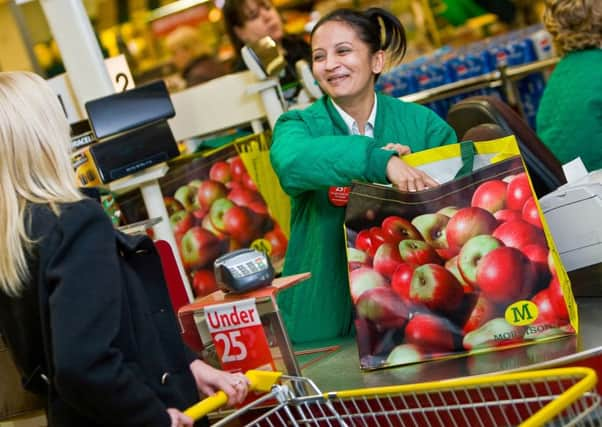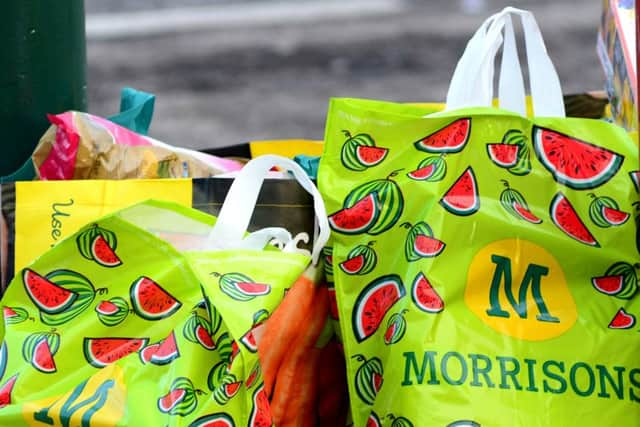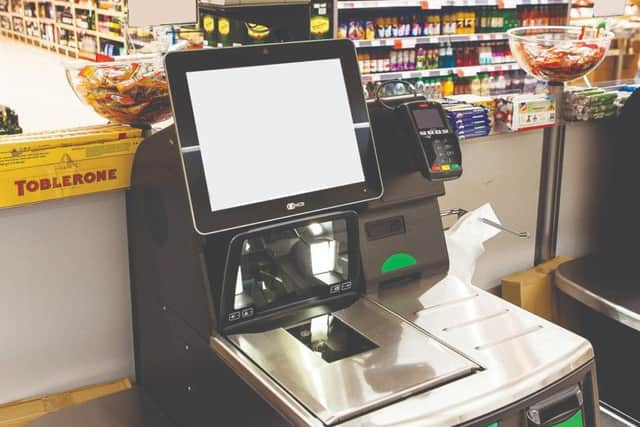Why there’s trouble in store if we shun humanity of supermarket cashiers for self-scanners – GP Taylor


Being an ardent people watcher, I have noticed that the supermarket is possibly the only place where some people get any form of human interaction.
Elderly people are especially isolated and I don’t mind waiting at the checkout while they have a conversation with the person at the till.
Advertisement
Hide AdAdvertisement
Hide AdThe checkout operators always seem quite happy to talk and the couple of minutes it takes usually leaves the recipient with a smile on their face.


It was, therefore, a sad day last week when I saw that my local store was encouraging people to ‘‘scan and go’’, something which to me is even worse than the dreaded self-checkout.
What a miserable way to shop with even less human contact.
There was a time when shopkeepers knew their customers and there was plenty of social interaction.


Advertisement
Hide AdAdvertisement
Hide AdNow it would seem to be that in the age of social media, shopping is becoming socially isolating. In fact, we may be entering a time when supermarkets try and do away with visible staff altogether.
Be warned, fewer tills, like fewer banks, mean fewer staff. Currently there are around 250,000 supermarket checkout operators in the country. With the increase in scan and go and self-checkouts, this could mean that 135,000 retail jobs disappear.
The increase in self-checkouts and “scan and go” isn’t about improving service, it is about cutting costs, reflecting the diverging costs of labour and technology.
Advertisement
Hide AdAdvertisement
Hide AdThat may be good for the profits of the retailers, but not so good for the communities they serve. The rise in the use of social media and the internet has already created a society where more and more people say they are lonely. A report this week said that most men only have one real friend.
The more time people spend on smart phones and computers, the less time they have for real interaction.
We are losing face to face banking and soon it looks like we will lose face to face shopping. Banks have closed on the high streets and even cashpoints are being removed.
Advertisement
Hide AdAdvertisement
Hide AdThe Campaign to End Loneliness has said that there are an estimated 1.2 million people who are chronically lonely. Cutting checkouts will only make this worse.
I would like to make a suggestion that there could be a link between social isolation and rising violent crime. I may be totally wrong, but the more anonymous we all become to one another, the less likely we are to care for each other.
To be human is more than living our lives connected to various Apps through our smartphones. Life will become very monotonous and boring if we are expected to speak to no one at the tills.
Fewer tills also have a downside for the retailer. Shopping has and will always be a social experience. There are a growing number of people who are not satisfied with the lack of customer to staff contact. These are not people harking back to nostalgic times. These are people who want to have a shopping experience where they can feel they are being served and not being treated like a cash cow handing over hard earned money for goods.
Advertisement
Hide AdAdvertisement
Hide AdThe Centre for Future Studies have said that 24 per cent of older shoppers are deterred from using automated checkouts.
By the end of the next decade, retailers could be missing out on £4.5bn a year from people put off shopping by these machines. That is on top of the estimated £3bn stolen at self-checkouts in 2017.
Criminologists believe that people feel it is easier to steal from a machine than a person. Automated checkouts give more opportunity for normally honest people to stick-it-to-the-man and not pay for items. This is all part of what is known as the Opportunity Theory.
For my part, I will never use a scan and go App or pay at an automated till. When I go shopping, I want to be dealt with by another human being and not a robot. Replacing people with Apps and machines seems to be part of a plan to force us into a cashless society.
Advertisement
Hide AdAdvertisement
Hide AdRetailers cannot just force us to shop the way they want. If enough people revolt and stop using these infernal machines then perhaps supermarkets might respond by putting more staff on the tills to reduce queues and give a better shopping experience.
GP Taylor is a writer and broadcaster from North Yorkshire.